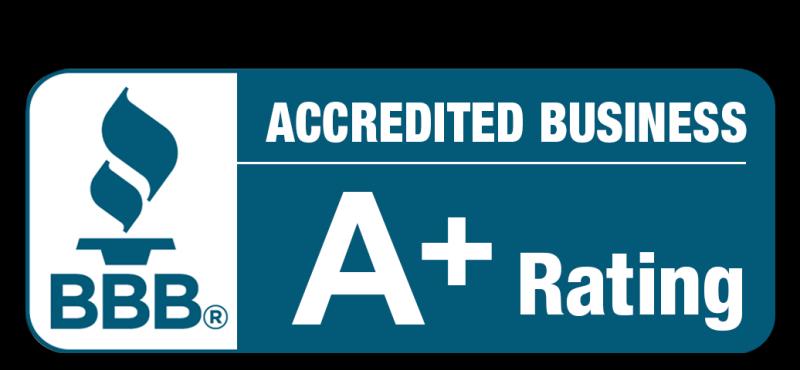Why would a business not be BBB accredited?
A business may not be accredited by the Better Business Bureau (BBB) for various reasons, and it doesn't necessarily imply negative qualities about the business. Here are some reasons why a business might not seek or have BBB accreditation:
Voluntary Nature:
- Choice Not to Seek Accreditation: Some businesses may choose not to seek BBB accreditation. This could be due to their business model, priorities, or simply because they haven't pursued accreditation for their own reasons.
Eligibility Criteria:
- New or Small Businesses: Newly established businesses or smaller enterprises might not meet certain criteria or requirements set by the BBB for accreditation, such as a minimum operating period or specific business standards.
- Non-Compliance: A business might not comply with certain BBB standards or ethical guidelines necessary for accreditation. This could include unresolved complaints or issues related to transparency, advertising practices, or customer interactions.
Industry or Sector:
- Industry Exemption: Some industries or sectors might not be eligible for BBB accreditation due to their nature, regulations, or specific business practices that might conflict with BBB standards.
- Limited Geographical Presence: Businesses operating in specific regions or with a limited geographical reach might not prioritize or qualify for BBB accreditation.
Different Rating Approach:
- Sole Reliance on BBB Rating: Some businesses might choose not to seek BBB accreditation but could still maintain a good reputation and credibility based on other forms of customer feedback, industry certifications, or their own quality assurance measures.
Cost or Resources:
- Financial Considerations: There could be associated costs with BBB accreditation, and smaller businesses might choose to allocate their resources elsewhere, especially if they believe they can maintain their reputation and customer trust through other means.
Unresolved Issues:
- Unresolved Complaints: A business with unresolved complaints or ongoing issues might not be eligible for accreditation until these concerns are addressed to the BBB's satisfaction.
While BBB accreditation can indicate a commitment to ethical business practices and customer satisfaction, its absence doesn't automatically imply a lack of credibility or reliability. It's essential for consumers to consider multiple factors when assessing a business, including reviews, testimonials, industry certifications, and their own experiences, in addition to BBB accreditation status.
Here's a summary of the potential reasons for a business not being BBB accredited, the benefits of BBB accreditation, and alternatives or reasons businesses might choose not to pursue BBB accreditation:
Reasons for Not Being BBB Accredited:
New Business: Businesses that have been in operation for less than a year may not have the necessary history or track record to qualify for BBB accreditation.
Insufficient Complaints: The BBB bases its accreditation decisions on a business's complaint history and response to those complaints. Businesses with no or very few complaints may not have enough data to be evaluated.
Unwillingness to Participate: Some businesses may choose not to pursue BBB accreditation due to the application process, ongoing fees, or the perceived limitations of the accreditation.
Benefits of BBB Accreditation:
Enhanced Credibility: BBB accreditation is a widely recognized symbol of business trustworthiness and ethical practices. It can boost a company's reputation and attract more customers.
Improved Customer Satisfaction: BBB accreditation demonstrates a commitment to resolving customer issues promptly and fairly, which can lead to greater customer satisfaction and loyalty.
Competitive Advantage: In competitive industries, BBB accreditation can set a business apart from its competitors and give it a marketing edge.
Dispute Resolution Assistance: BBB accreditation provides access to BBB's dispute resolution services, which can help businesses handle customer complaints effectively.
Alternatives or Reasons Not to Pursue BBB Accreditation:
Alternative Reputation Management: Businesses may choose to focus on building their reputation through positive customer reviews, active social media engagement, and overall customer service excellence.
Cost Considerations: The application and ongoing fees associated with BBB accreditation may not be feasible for all businesses.
Focus on Specific Certifications: Businesses may prioritize industry-specific certifications or accreditations that are more relevant to their target audience and services.
Different Business Models: Some business models, such as e-commerce or service-based businesses, may not find BBB accreditation as directly beneficial as traditional brick-and-mortar businesses.
Limited Scope of Accreditation: BBB accreditation focuses on customer complaints and ethics, but it may not address other important aspects of business performance or quality.
Ultimately, the decision of whether or not to pursue BBB accreditation depends on a business's unique circumstances, priorities, and target market. Businesses should carefully weigh the potential benefits and drawbacks to determine if BBB accreditation aligns with their overall business goals and strategies.













